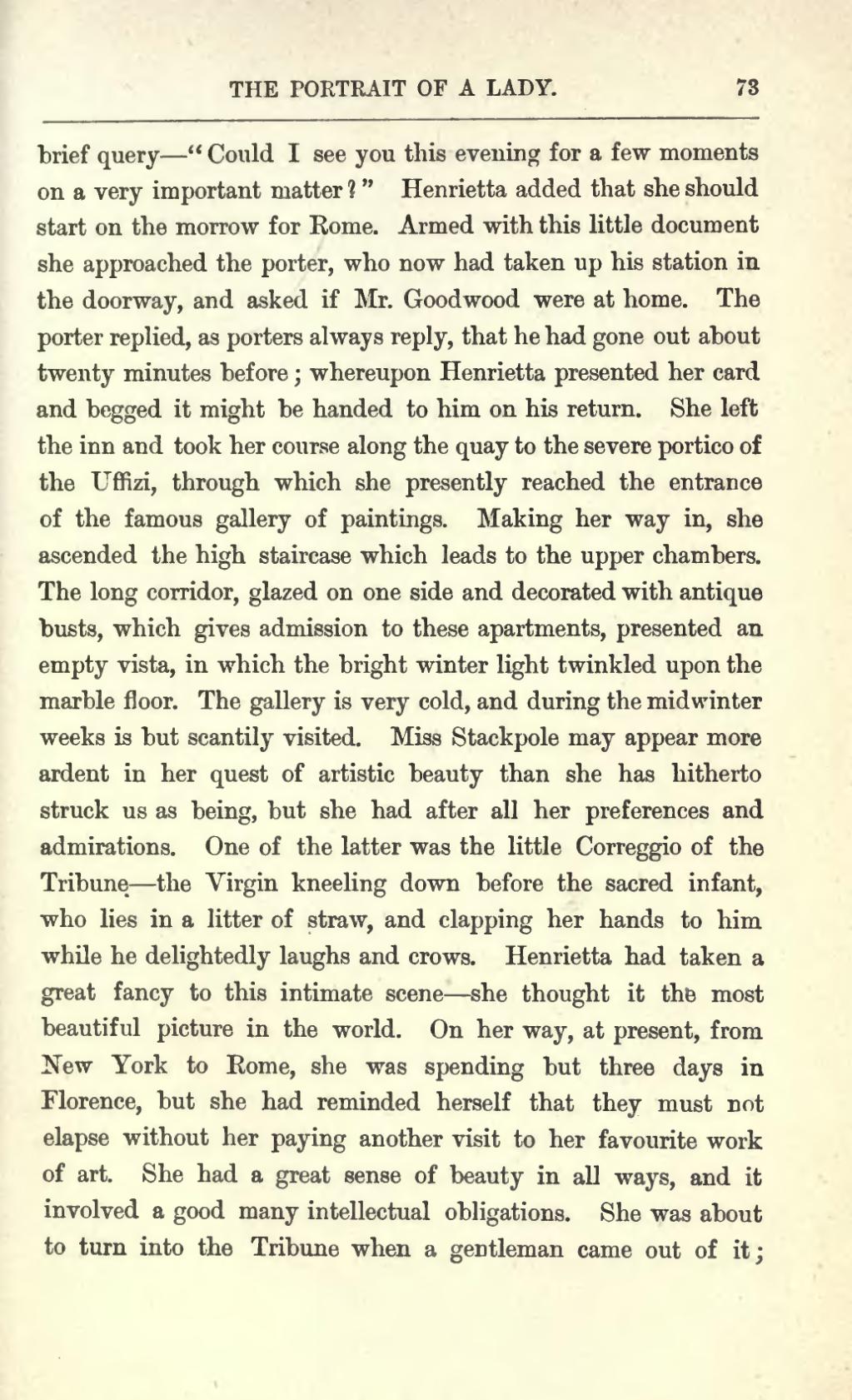brief query—"Could I see you this evening for a few moments on a very important matter?" Henrietta added that she should start on the morrow for Rome. Armed with this little document she approached the porter, who now had taken up his station in the doorway, and asked if Mr. Goodwood were at home. The porter replied, as porters always reply, that he had gone out about twenty minutes before; whereupon Henrietta presented her card and begged it might be handed to him on his return. She left the inn and took her course along the quay to the severe portico of the Uffizi, through which she presently reached the entrance of the famous gallery of paintings. Making her way in, she ascended the high staircase which leads to the upper chambers. The long corridor, glazed on one side and decorated with antique busts, which gives admission to these apartments, presented an empty vista, in which the bright winter light twinkled upon the marble floor. The gallery is very cold, and during the midwinter weeks is but scantily visited. Miss Stackpole may appear more ardent in her quest of artistic beauty than she has hitherto struck us as being, but she had after all her preferences and admirations. One of the latter was the little Correggio of the Tribune—the Virgin kneeling down before the sacred infant, who lies in a litter of straw, and clapping her hands to him while he delightedly laughs and crows. Henrietta had taken a great fancy to this intimate scene—she thought it the most beautiful picture in the world. On her way, at present, from New York to Rome, she was spending but three days in Florence, but she had reminded herself that they must not elapse without her paying another visit to her favourite work of art. She had a great sense of beauty in all ways, and it involved a good many intellectual obligations. She was about to turn into the Tribune when a gentleman came out of it;
